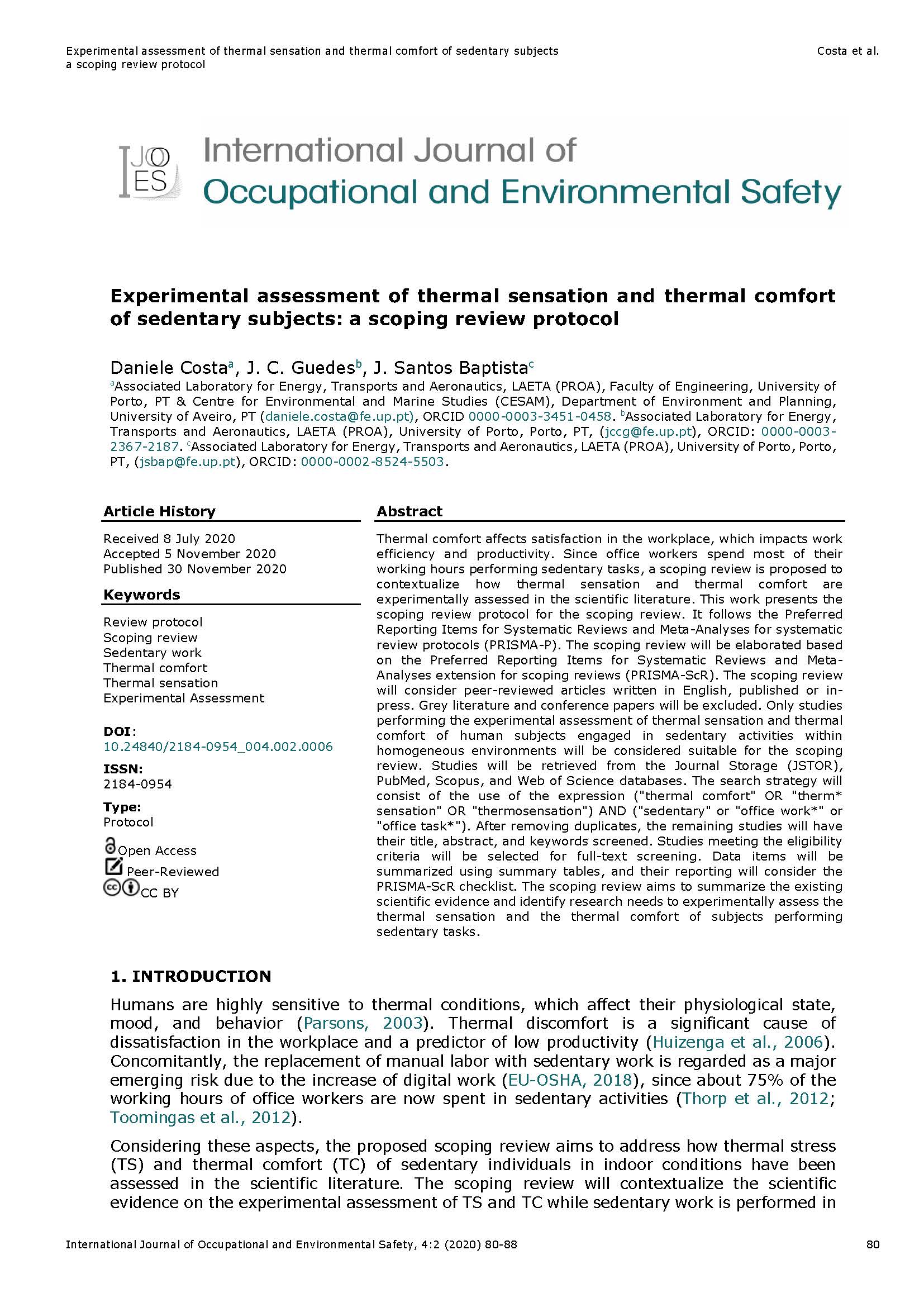Experimental assessment of thermal sensation and thermal comfort of sedentary subjects: a scoping review protocol
Main Article Content
Abstract
Thermal comfort affects satisfaction in the workplace, which impacts work efficiency and productivity. Since office workers spend most of their working hours performing sedentary tasks, a scoping review is proposed to contextualize how thermal sensation and thermal comfort are experimentally assessed in the scientific literature. This work presents the scoping review protocol for the scoping review. It follows the Preferred Reporting Items for Systematic Reviews and Meta-Analyses for systematic review protocols (PRISMA-P). The scoping review will be elaborated based on the Preferred Reporting Items for Systematic Reviews and Meta-Analyses extension for scoping reviews (PRISMA-ScR). The scoping review will consider peer-reviewed articles written in English, published or in-press. Grey literature and conference papers will be excluded. Only studies performing the experimental assessment of thermal sensation and thermal comfort of human subjects engaged in sedentary activities within homogeneous environments will be considered suitable for the scoping review. Studies will be retrieved from the Journal Storage (JSTOR), PubMed, Scopus, and Web of Science databases. The search strategy will consist of the use of the expression ("thermal comfort" OR "therm* sensation" OR "thermosensation") AND ("sedentary" or "office work*" or "office task*"). After removing duplicates, the remaining studies will have their title, abstract, and keywords screened. Studies meeting the eligibility criteria will be selected for full-text screening. Data items will be summarized using summary tables, and their reporting will consider the PRISMA-ScR checklist. The scoping review aims to summarize the existing scientific evidence and identify research needs to experimentally assess the thermal sensation and the thermal comfort of subjects performing sedentary tasks.

